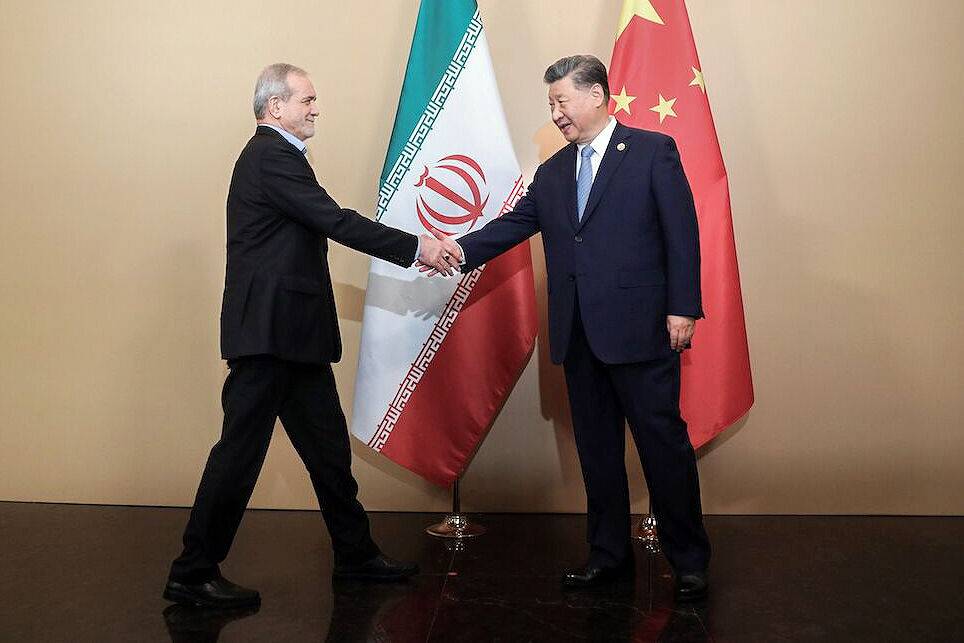2516 Views
India Breaks Its Silence: Why New Delhi’s Shift in the SCO Could Reshape Iran’s Global Standing
The Shanghai Cooperation Organization (SCO) summit was held in China on August 1, 2025—a gathering that political analysts describe as the most significant since the organization’s founding, with leaders from over 20 Asian and European countries in attendance.
The participation of Iran’s president at the SCO summit, only two months after the end of the war against the so-called “Crusader–Zionist Axis,” signaled that Iran is far stronger than its adversaries had assumed, and now holds a key position in shaping the emerging multipolar order. In essence, this presence was a demonstration of Iranian power in the aftermath of the 12-day war with the U.S. and the Zionist regime.
The SCO had already, in an official statement dated June 14, 2025, explicitly condemned Israel’s military strikes on Iranian territory the previous day (June 13, 2025). It emphasized that these attacks targeted energy facilities and infrastructure, causing civilian casualties, and constituted a “clear violation of international law and the UN Charter.” Yet, while the SCO statement condemned Israel outright, India refrained from endorsing it at the time, choosing instead a cautious and balancing posture.
For this reason, one of the most remarkable developments of the recent SCO summit was the joint condemnation—this time with India’s signature—of the Western-Hebrew aggression against Iran. Given that New Delhi had previously refused to denounce the war, its shift represents a politically significant event.
Another central outcome of the summit was the joint letter by the foreign ministers of Iran, China, and Russia to the UN Secretary-General and the President of the Security Council, rejecting the “snapback” mechanism invoked by the E3 (Italy, Germany, and the United Kingdom). This letter underscored the trilateral alignment of Tehran, Moscow, and Beijing against Europe and the United States, deepening the East–West rift over the legal responsibilities tied to the JCPOA and sanctions against Iran.
The letter made clear that the European trio’s attempt to revive the UN Security Council’s terminated resolutions against Iran is inconsistent with the JCPOA framework and Resolution 2231, devoid of legal grounds, and therefore “null and void.” It argued that the E3’s chosen path exploits the functions of the Security Council, while misleading its members and the international community regarding the true obstacles in implementing the nuclear deal.
Recalling that the International Atomic Energy Agency had verified Iran’s compliance with its JCPOA commitments since the agreement’s implementation in 2015, the letter stressed:
“Re-imposing terminated Security Council sanctions on Iran is illogical and unreasonable. Such action only rewards the European trio for their significant non-compliance, undermines years of painstaking diplomatic work, weakens the credibility of multilateral agreements, and sets a dangerous precedent for the selective application of international obligations. Preserving Resolution 2231, including its timelines, is therefore of paramount importance.”
The letter concluded by urging Security Council members to reject the European claim and reaffirm their commitment to international law and multilateral diplomacy. It further called on France, Germany, and the UK to change course and engage in political dialogue, while urging all nations to help create conducive conditions for diplomacy.
In summary, the SCO’s alignment with Iran—especially India’s participation—reflects a notable shift in Asian powers’ approach to U.S. and Israeli pressure. It also strengthens Iran’s position in shaping the future regional and global balance. Beyond its geopolitical symbolism, the summit opened avenues for expanding economic cooperation with Russia and China, advancing the 25-year cooperation plan, and discussing the creation of a joint development bank—steps that could ease sanctions pressure and cement Iran’s role as a regional transit hub.
Translated by Ashraf Hemmati from the original Persian article written by Hakimeh Zaeem Bashi
1. https://eng.sectsco.org/20250614/1861649.html?utm_source=chatgpt.com
2. https://economictimes.indiatimes.com/news/defence/india-skips-sco-discussion-on-israel-iran-escalation-distances-itself-from-organisations-condemnation-of-israeli-strikes/articleshow/121849209.cms?utm_source=chatgpt.com
3. https://report.az/en/other-countries/china-iran-and-russia-send-joint-letter-to-un-regarding-snapback-mechanism
4. https://www.aa.com.tr/en/asia-pacific/iran-china-russia-reject-european-move-to-trigger-snapback-sanctions-on-tehran/3675604

Comment
Post a comment for this article